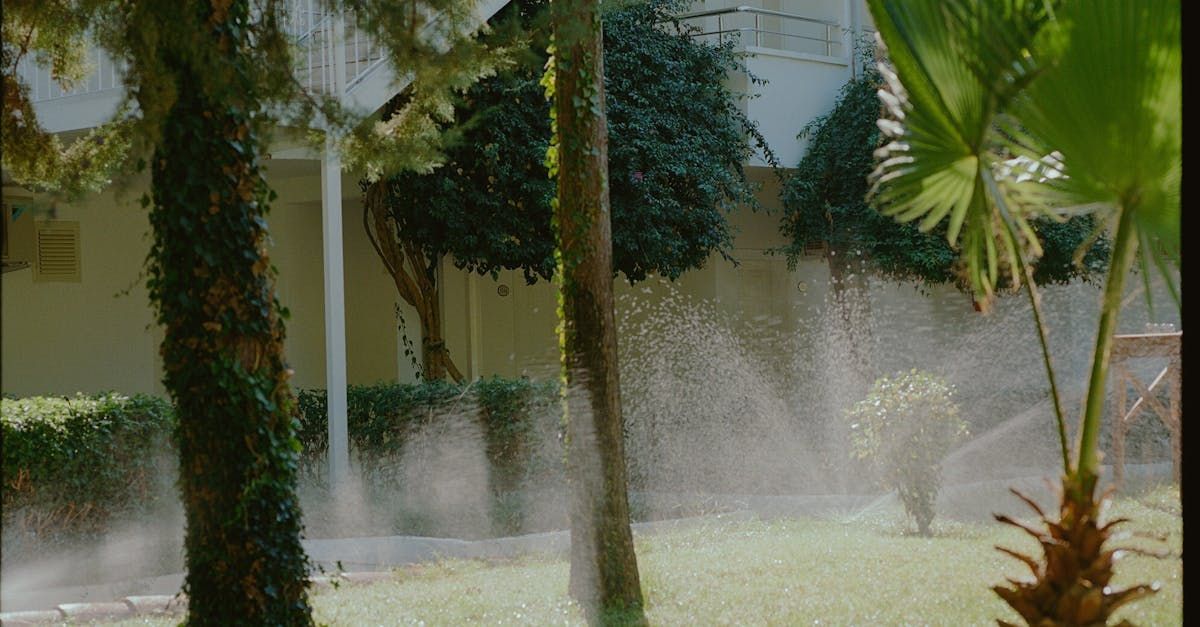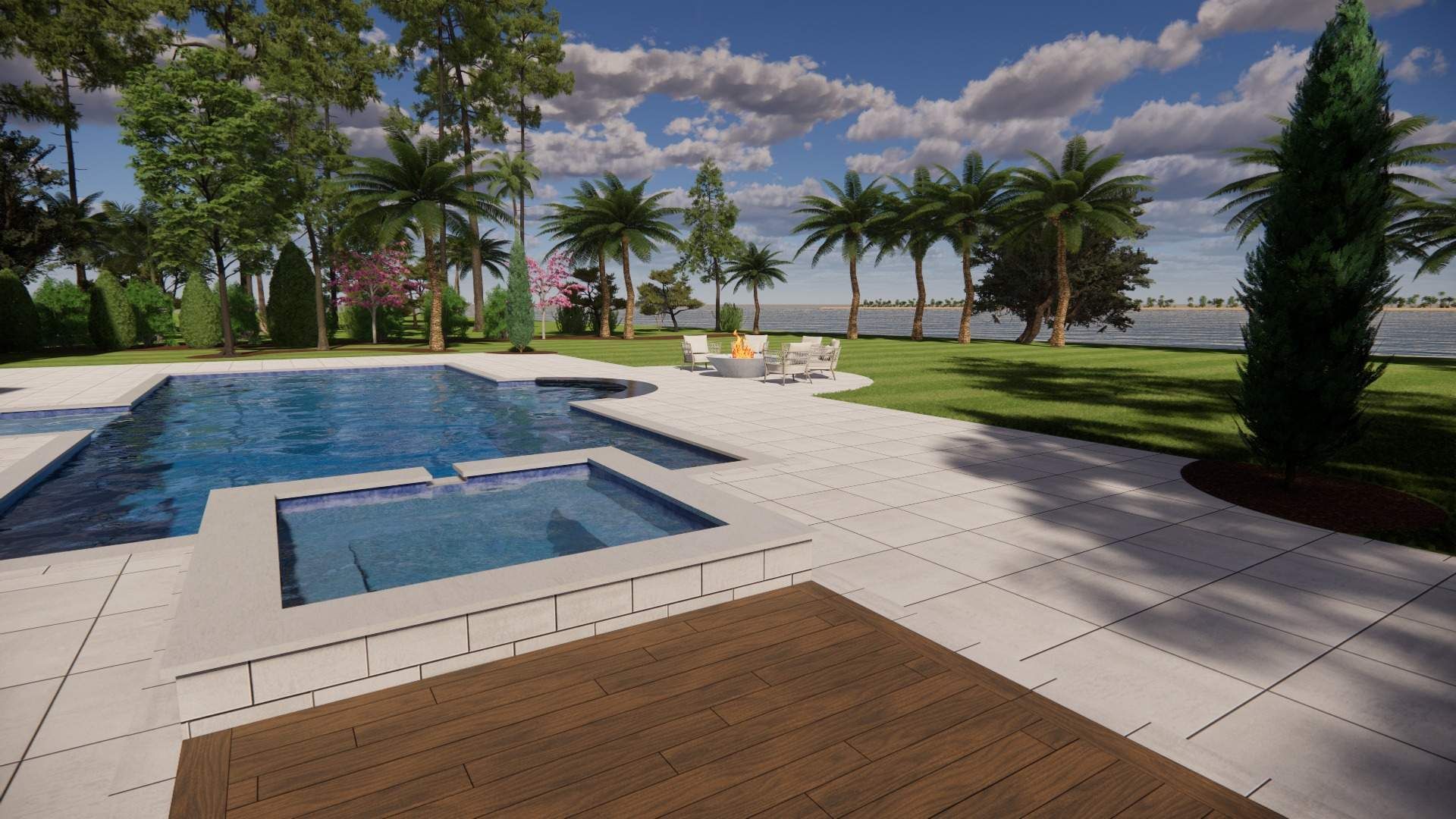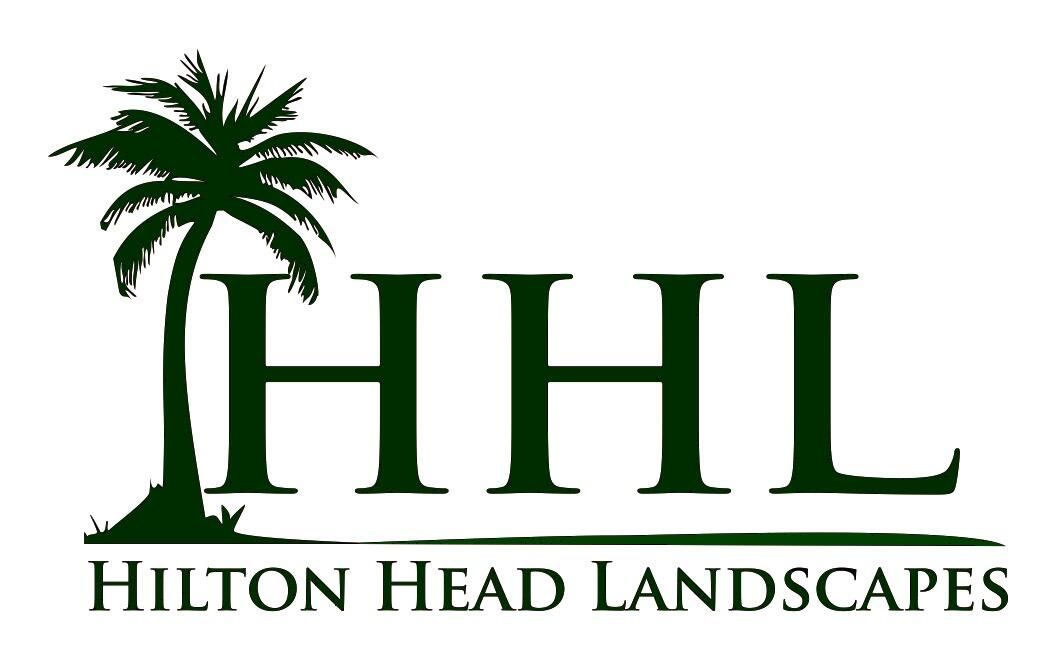Smart Irrigation Technology: Hilton Head's Water Savior
Smart irrigation technology is an advanced system that uses sensors, weather data, and automated controls to optimize water usage for landscaping and agriculture. This innovative approach to irrigation is changing how we manage water resources, especially in places like Hilton Head Island, where water conservation is crucial.
Key Takeaways:
- Smart irrigation systems use real-time data to adjust watering schedules
- These systems can reduce water usage by up to 50% compared to traditional methods
- Weather-based and soil moisture sensors are the two main types of smart irrigation controllers
- Smart irrigation technology can lead to healthier plants and lower water bills
- Implementation of smart irrigation systems is growing in Hilton Head Island due to water conservation needs
Understanding Smart Irrigation Technology
Smart irrigation technology is a game-changer for water management in landscaping. It's not just about saving water; it's about using water more efficiently. In Hilton Head Island, where we often face water restrictions during dry spells, this technology is becoming increasingly important.
How Smart Irrigation Works
Smart irrigation systems use a combination of sensors, weather data, and computer-controlled devices to water plants only when necessary. These systems can detect rainfall, soil moisture levels, and even plant water needs, adjusting irrigation schedules accordingly.
For example, if it rains overnight, a smart irrigation system will automatically skip the next scheduled watering. This level of precision ensures that plants get exactly the amount of water they need, no more and no less.
Types of Smart Irrigation Controllers
There are two main types of smart irrigation controllers: weather-based and soil moisture sensor-based. Each has its strengths and is suited to different situations.
Weather-Based Controllers
Weather-based controllers, also known as ET (evapotranspiration) controllers, use local weather data to determine watering needs. They take into account factors like temperature, humidity, wind speed, and solar radiation to calculate how much water plants are losing through evaporation and transpiration.
These controllers are particularly useful in Hilton Head Island, where our coastal climate can be quite variable. They can adjust watering schedules based on seasonal changes, ensuring that plants receive appropriate irrigation throughout the year.
Soil Moisture Sensor Controllers
Soil moisture sensor controllers use probes placed in the ground to measure the actual moisture content of the soil. When the soil dries out beyond a certain point, the system triggers irrigation.
This type of system is excellent for areas with varied soil types or microclimates, which we often see in Hilton Head Island landscapes. It ensures that water is only applied when the soil needs it, regardless of weather conditions above ground.
Benefits of Smart Irrigation Technology
The advantages of smart irrigation technology extend beyond just saving water. Let's look at some of the key benefits for Hilton Head Island residents and businesses.
Water Conservation
The most obvious benefit of smart irrigation is water conservation. By watering only when necessary and in the right amounts, these systems can reduce water usage by up to 50% compared to traditional irrigation methods.
In Hilton Head Island, where we're surrounded by water but still need to conserve our freshwater resources, this can make a significant difference. It's not uncommon for homeowners to see a noticeable drop in their water bills after installing a smart irrigation system.
Healthier Plants
Believe it or not, smart irrigation can lead to healthier plants. By providing water only when needed, these systems help prevent overwatering, which can lead to root rot and other plant diseases.
This is particularly important in our humid climate, where fungal diseases can be a problem. Smart irrigation helps maintain the right balance of moisture, promoting strong root growth and overall plant health.
Time and Labor Savings
For both homeowners and landscape professionals in Hilton Head Island, smart irrigation systems can save a lot of time and effort. Once set up, these systems require minimal manual intervention. They adjust automatically to changing weather conditions, eliminating the need for constant reprogramming of irrigation schedules.
Environmental Impact
By reducing water waste, smart irrigation technology has a positive impact on the environment. It helps conserve our local water resources and reduces the energy needed to pump and treat water for irrigation purposes.
This aligns well with Hilton Head Island's commitment to environmental stewardship and sustainable practices.

Implementing Smart Irrigation in Hilton Head Island
If you're considering implementing smart irrigation technology in your Hilton Head Island property, there are a few things to keep in mind.
Assessing Your Needs
Before installing a smart irrigation system, it's important to assess your specific needs. Consider factors like:
- The size of your landscaped area
- The types of plants you have
- Your soil type
- Any microclimates on your property
- Your budget
This information will help determine which type of smart irrigation system is best for you.
Choosing the Right System
With various smart irrigation systems available, choosing the right one can seem daunting. Here's a simple comparison to help:

Professional Installation vs. DIY
While some smart irrigation systems are marketed as DIY-friendly, professional installation is often the best choice, especially for larger or more complex landscapes. A professional can ensure that the system is properly calibrated and optimized for your specific landscape needs.
In Hilton Head Island, where we have unique soil conditions and a variety of native and ornamental plants, professional expertise can make a big difference in the effectiveness of your smart irrigation system.
Smart Irrigation and Water Regulations
Hilton Head Island, like many coastal communities, has water use regulations aimed at conservation. Smart irrigation technology can help property owners comply with these regulations while maintaining beautiful landscapes.
Meeting Water Restrictions
During periods of drought or high demand, Hilton Head Island may impose water use restrictions. Smart irrigation systems can be easily programmed to comply with these restrictions, automatically adjusting watering schedules as needed.
Potential Incentives
Some water utilities offer incentives for installing water-saving technologies like smart irrigation systems. While Hilton Head Island doesn't currently have such a program, it's worth keeping an eye out for future initiatives that might offset the cost of installation.
The Future of Smart Irrigation
As technology continues to advance, we can expect to see even more sophisticated smart irrigation systems in the future. Some potential developments include:
- Integration with smart home systems
- Use of artificial intelligence to predict watering needs
- Incorporation of drone technology for aerial monitoring of large landscapes
These advancements could make smart irrigation even more efficient and user-friendly in the coming years.
Maintenance and Troubleshooting
Like any technology, smart irrigation systems require some maintenance to keep them running optimally. Regular checks of sensors, controllers, and sprinkler heads are important.
Common issues to watch out for include:
- Clogged or misaligned sprinkler heads
- Damaged sensors
- Connectivity problems for systems that rely on WiFi
Most of these issues can be easily resolved with basic troubleshooting or professional maintenance.
Cost Considerations
While the initial cost of a smart irrigation system can be higher than a traditional system, the long-term savings often justify the investment. Here's a breakdown of potential costs and savings:
Professional Installation vs. DIY
While some smart irrigation systems are marketed as DIY-friendly, professional installation is often the best choice, especially for larger or more complex landscapes. A professional can ensure that the system is properly calibrated and optimized for your specific landscape needs.
In Hilton Head Island, where we have unique soil conditions and a variety of native and ornamental plants, professional expertise can make a big difference in the effectiveness of your smart irrigation system.
Smart Irrigation and Water Regulations
Hilton Head Island, like many coastal communities, has water use regulations aimed at conservation. Smart irrigation technology can help property owners comply with these regulations while maintaining beautiful landscapes.
Meeting Water Restrictions
During periods of drought or high demand, Hilton Head Island may impose water use restrictions. Smart irrigation systems can be easily programmed to comply with these restrictions, automatically adjusting watering schedules as needed.
Potential Incentives
Some water utilities offer incentives for installing water-saving technologies like smart irrigation systems. While Hilton Head Island doesn't currently have such a program, it's worth keeping an eye out for future initiatives that might offset the cost of installation.
The Future of Smart Irrigation
As technology continues to advance, we can expect to see even more sophisticated smart irrigation systems in the future. Some potential developments include:
- Integration with smart home systems
- Use of artificial intelligence to predict watering needs
- Incorporation of drone technology for aerial monitoring of large landscapes
These advancements could make smart irrigation even more efficient and user-friendly in the coming years.
Maintenance and Troubleshooting
Like any technology, smart irrigation systems require some maintenance to keep them running optimally. Regular checks of sensors, controllers, and sprinkler heads are important.
Common issues to watch out for include:
- Clogged or misaligned sprinkler heads
- Damaged sensors
- Connectivity problems for systems that rely on WiFi
Most of these issues can be easily resolved with basic troubleshooting or professional maintenance.
Cost Considerations
While the initial cost of a smart irrigation system can be higher than a traditional system, the long-term savings often justify the investment. Here's a breakdown of potential costs and savings:
Remember, these are rough estimates and actual costs can vary based on your specific needs and the size of your property.
Smart Irrigation for Different Property Types
Smart irrigation isn't just for residential properties. It can be beneficial for a wide range of landscapes on Hilton Head Island:
- Golf courses
- Public parks
- Commercial properties
- Agricultural areas
Each of these property types can benefit from the water savings and improved plant health that smart irrigation provides.
Combining Smart Irrigation with Other Water-Saving Techniques
For maximum water efficiency, smart irrigation can be combined with other water-saving landscaping techniques. Some options to consider:
- Rainwater harvesting
- Drought-resistant native plants
- Mulching to retain soil moisture
- Permeable paving to reduce runoff
These techniques, when used alongside smart irrigation, can create a truly water-efficient landscape.
Educating the Community
As smart irrigation technology becomes more prevalent in Hilton Head Island, community education becomes increasingly important. Local landscaping companies, water utilities, and environmental organizations can play a role in helping residents and businesses understand the benefits and proper use of these systems.
Conclusion
Smart irrigation technology offers a powerful solution for water management in Hilton Head Island. By providing precise, data-driven irrigation, these systems help conserve our precious water resources while maintaining beautiful, healthy landscapes. As we face ongoing challenges with water conservation, smart irrigation is likely to become an increasingly important tool in our efforts to create sustainable, water-efficient communities. For more information, you can visit our website or contact us.
Whether you're a homeowner, a business owner, or a landscape professional, considering smart irrigation technology could be a smart move for your property and for our island's future. With its potential for significant water savings, improved plant health, and environmental benefits, smart irrigation is more than just a trend – it's a valuable investment in sustainable landscaping practices.



